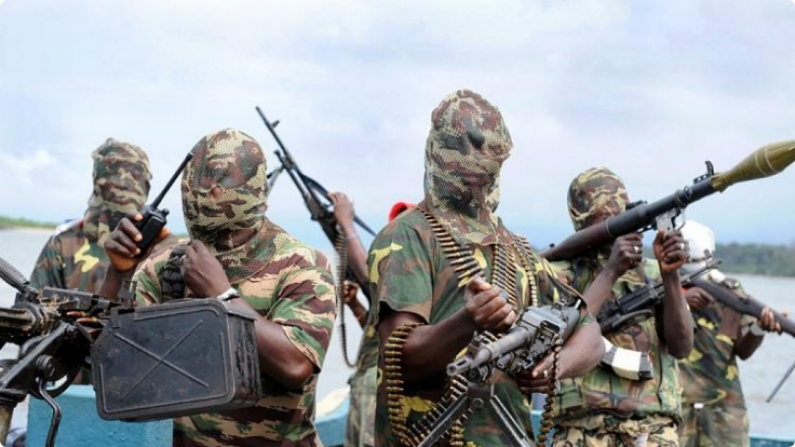
VIA “thedailybeast.com” by Barbie Latza Nadeau
“It shocks me that the international community can turn a blind eye. But the fact that the administration has let these atrocities go unchecked is just spectacular incompetence.”
But she says the women who will be missed when the body count is tallied are the mothers of the next generation. “It’s girls, it is women who make sure the family is still standing,” she says. “They are the ones in the market, on the farms. When you try to annihilate a whole generation of economy supporters—your women—what do you leave your economy with?”
Adele-Oso says Nigeria’s problems are so great, women have lost hope. “Apathy continues to be the underbelly,” she says. “So much has gone on for so many decades, there is a running theme that ‘I need to survive, I need to get to the next day.’ There is a long way to go before they see women as serious leaders in our country, and that women are given opportunities that they deserve. I worry we are losing a generation of potentially brilliant leaders because our country is inept.” Dapo Olorunyomi, the managing editor of Nigeria’s Premium Times, agrees. He also predicts the loss of a generation of potential leaders by not educating women. “If people send kids to school, it won’t be the girls,” he says. “Islamic tradition does not privilege the female child. You have to make a decision and have to choose between a boy and a girl. It is traditional African thinking that you want to put an investment in the boy.”
He also worries that the upcoming elections won’t make things better. “We seem to be very complacent or lackadaisical at Boko Haram’s activities, and I don’t know why,” he says. “We are losing ground on the levels of violence, the numbers, the accountability issues—we shouldn’t be losing ground on everything.”
As the country readies for elections, many Nigerians hope the international community would apply the same pressure to their government they showed last April when Boko Haram abducted the schoolgirls. “All of the people that came together for that viral campaign need to realign their energy and put pressure on the government now,” says Akwei. “If anyone can do it, it is Nigerians abroad saying we need to do something to push fundamental changes forward.”
Adel-Oso is more philosophical when it comes to the question of why the world has forgotten the #bringbackourgirls campaign and largely ignored last week’s massacres. “Everyone is seeing that in contrast to the global attention that was given to France last week,” she says. “But I push back and ask why is it that Nigeria doesn’t demand it? It’s not as if Boko Haram crept up overnight—we’ve been dealing with them for years.”
Journalist Olorunyomi is optimistic. He says that if the country could find a way to steer out of the current mess, Nigeria could be a world power economically and culturally. But the road ahead is long. “We can’t be overgenerous in our expectations,” he says. “But we can’t just give up either.”
